How To Prevent Swimmer’s Ear-Swimmer’s ear, also known as otitis externa, is an outer ear canal infection caused by bacteria or fungi.
It’s common among swimmers, but you can easily prevent it with a few simple steps. In this blog, I’ll Walk you through the best ways to prevent swimmer’s ear and keep your ears safe and healthy.
How To Prevent Swimmer’s Ear?
To prevent swimmer’s ear, I take a few simple steps. First, I always keep my ears dry. After swimming, I tilt my head to drain the water. I use a towel to dry the outer ear gently.
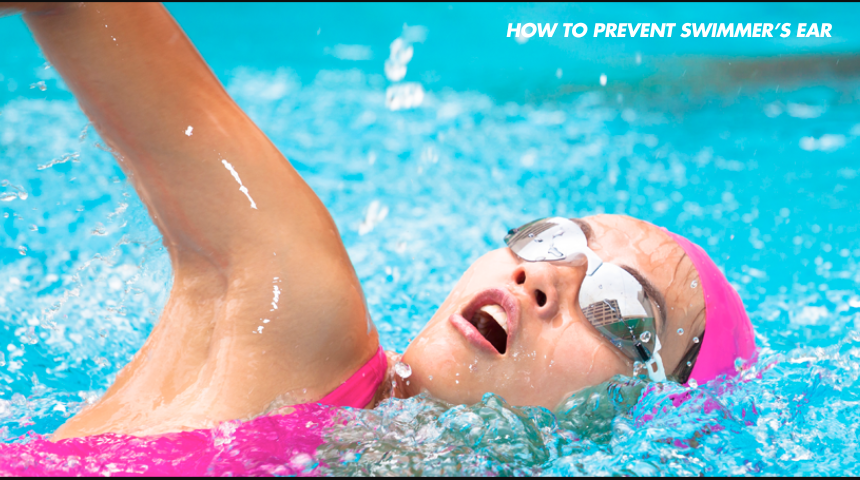
I avoid using cotton swabs or objects that push water deeper. Earplugs are a must during swims, and I use ear drops to stop bacteria and fungus growth. I also avoid swimming in dirty water. If water gets stuck, I dry it with a hairdryer on a low setting.
These habits protect me from infections. Staying consistent has kept my ears healthy. Prevention is easier than treating pain later.
What Is Swimmer’s Ear?
Swimmer’s ear is an infection that occurs when water gets trapped in the ear canal. The moisture creates an environment for bacteria or fungi to grow, leading to irritation, itching, pain, and sometimes even discharge.
It typically happens after swimming in contaminated or dirty water, but even clean water can cause problems if it doesn’t drain properly.
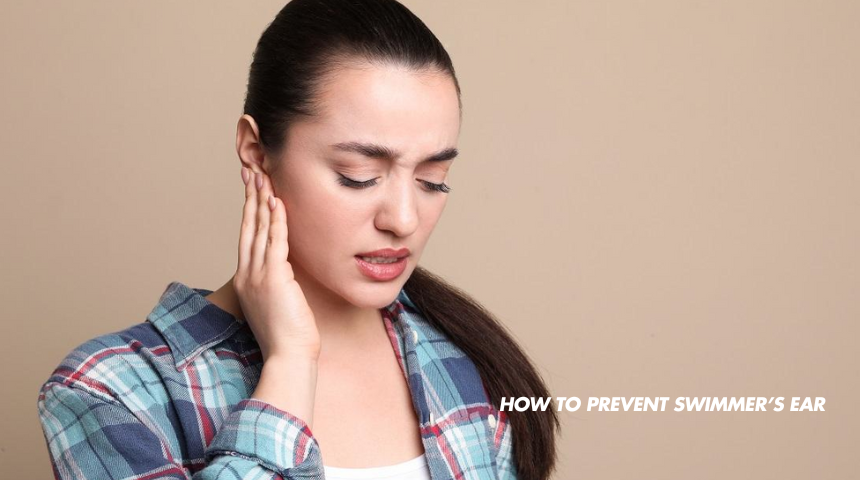
Symptoms of swimmer’s ear include:
- Itching inside the ear.
- Redness or swelling around the ear.
- Pain when touching or tugging on the ear.
- Fluid drainage from the ear.
If left untreated, swimmer’s ear can lead to more serious infections or even hearing loss. But don’t worry—preventing swimmer’s ear is easier than you might think!
Top Tips To Prevent Swimmer’s Ear
1. Dry Your Ears Immediately
The most important step in preventing swimmer’s ear is drying your ears after swimming. Water trapped in the ear canal is a breeding ground for bacteria and fungi.
After swimming, tilt your head to one side and gently pull your earlobe to let the water drain out. I also use a clean towel to dry the outer ear gently.

If I feel water still stuck inside, I use a hairdryer on low heat, holding it a few inches away from my ear to help evaporate any moisture.
2. Use Earplugs While Swimming
Using earplugs is one of the best ways to prevent water from entering your ears in the first place. I make sure to use high-quality, waterproof earplugs that fit snugly in my ears.
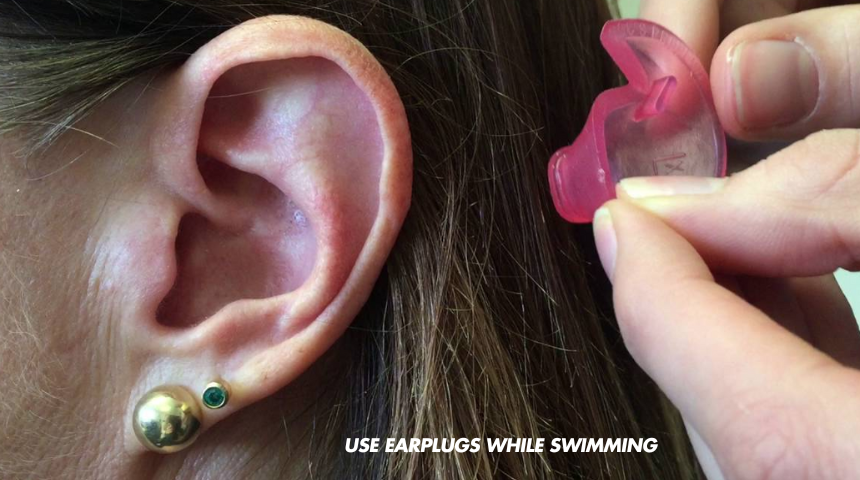
Silicone earplugs work great because they mold to the shape of your ear and create a seal. If you swim frequently, investing in a good pair of earplugs will save you from unnecessary ear problems.
3. Avoid Using Cotton Swabs
It’s tempting to use cotton swabs to clean the ears, but I’ve learned that this can push water and debris deeper into the ear canal. Instead, I clean only the outer ear with a towel.
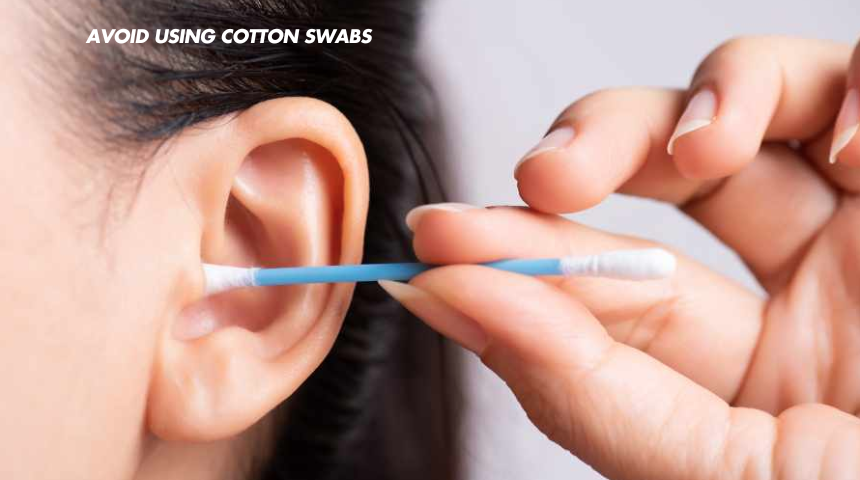
If water gets trapped, I let it drain naturally or use preventive ear drops. Inserting anything into the ear canal increases the risk of infection by irritating the skin or pushing bacteria deeper.
4. Use Preventive Ear Drops
To further protect my ears, I use ear drops after swimming. These drops are formulated to dry out the moisture in the ear canal and kill any bacteria or fungi.
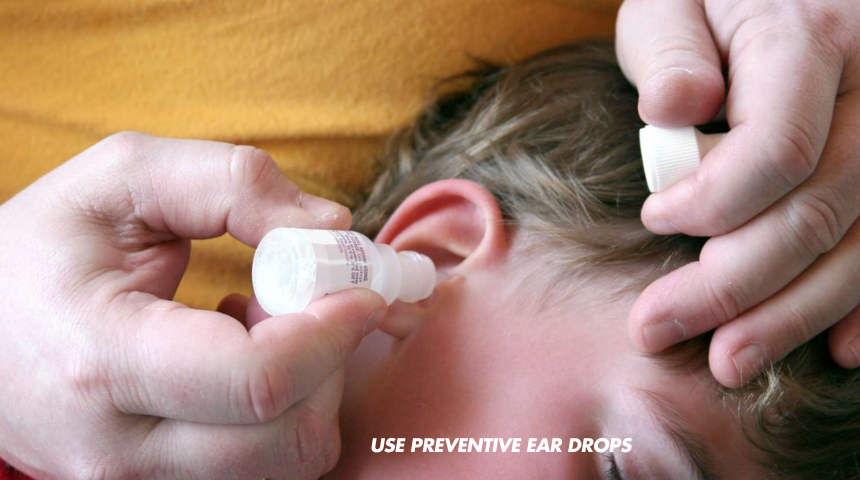
I prefer drops that contain alcohol and vinegar, as they are effective at preventing infections. I make it a habit to use ear drops whenever I swim in pools or natural bodies of water.
5. Stay Away From Dirty Water
Swimming in contaminated or dirty water is one of the primary causes of a swimmer’s ear. I always check the condition of the pool or lake before swimming.
If the water is cloudy, has a strong odor, or looks unclean, I avoid swimming. Clean water minimizes the risk of infection, so I’m careful about where I swim.
6. Keep Your Head Above Water
When I swim, I try to keep my head above water as much as possible, especially when swimming in open water. This reduces the amount of water that enters my ears.
If I’m doing freestyle, I make sure to rotate my head to avoid splashing water into my ears. Keeping my head out of the water for longer periods has helped me stay ear infection-free.
7. Use A Hairdryer On Low Heat
If water is still trapped in my ear after a swim, I use a hairdryer to help dry it out. I set the hairdryer on the lowest heat setting and held it about 6 inches from my ear.
The warm air helps evaporate the remaining moisture. I never use high heat, as it could damage the ear. This quick method has been a game-changer for me in preventing swimmer’s ear.
8. Consult A Doctor If Needed
If I ever feel pain or notice drainage from my ear, I don’t wait. I see a doctor right away. An ear infection can worsen quickly, and it’s better to get treated early.
A doctor can prescribe antibiotics or antifungal ear drops to clear up the infection. Early intervention ensures I won’t miss out on swimming for long.
Common Mistakes To Avoid
To further protect my ears, I avoid these common mistakes that can lead to swimmer’s ear:
- Using objects to clean the ear canal: Cotton swabs or hairpins can cause more harm than good. Stick to cleaning the outer ear only.
- Ignoring symptoms: If you feel itching, or pain, or notice fluid draining from the ear, don’t ignore it. Treat it early to avoid complications.
- Swimming in unsafe waters: Always check the condition of the water before swimming. Contaminated water increases the risk of infection.
FAQ
How can I keep my ears dry after swimming?
Tilt your head and use a towel to dry the outer ear. If necessary, use a hairdryer on low heat.
Should I use earplugs while swimming?
Yes, earplugs are great for preventing water from entering your ears. They help keep your ears dry.
Are cotton swabs safe for cleaning ears?
No, cotton swabs can push debris and water deeper into the ear. Only clean the outer ear.
Can ear drops help prevent swimmer’s ear?
Yes, ear drops help dry moisture in the ear and prevent infections. Use them after swimming.
Is it safe to swim in all types of water?
No, avoid swimming in dirty or contaminated water. Always check the water’s cleanliness before swimming.
Conclusion
Preventing swimmer’s ear is all about taking simple, consistent steps. By drying your ears, using earplugs, and avoiding dirty water, you can significantly reduce the risk of infection.
Incorporating these habits into your routine has helped me stay infection-free and enjoy swimming without worries. Take care of your ears, and you’ll be able to dive into the water with confidence and comfort.
Have you experienced swimmer’s ear before? Share your tips for prevention in the comments below, and don’t forget to check out my other swimming-related blogs for more helpful advice!